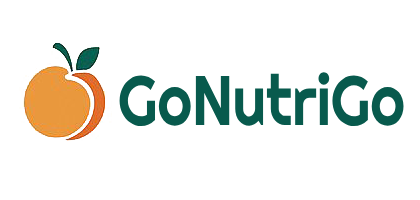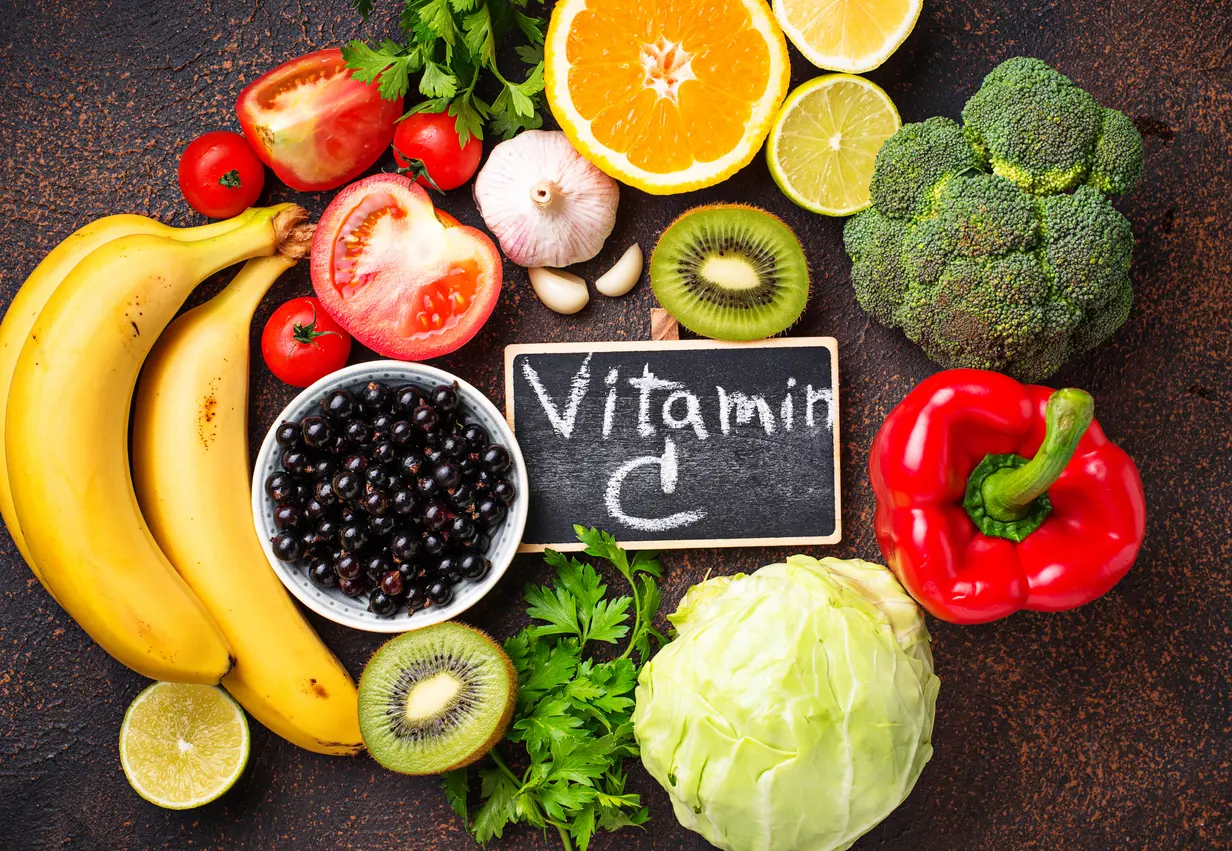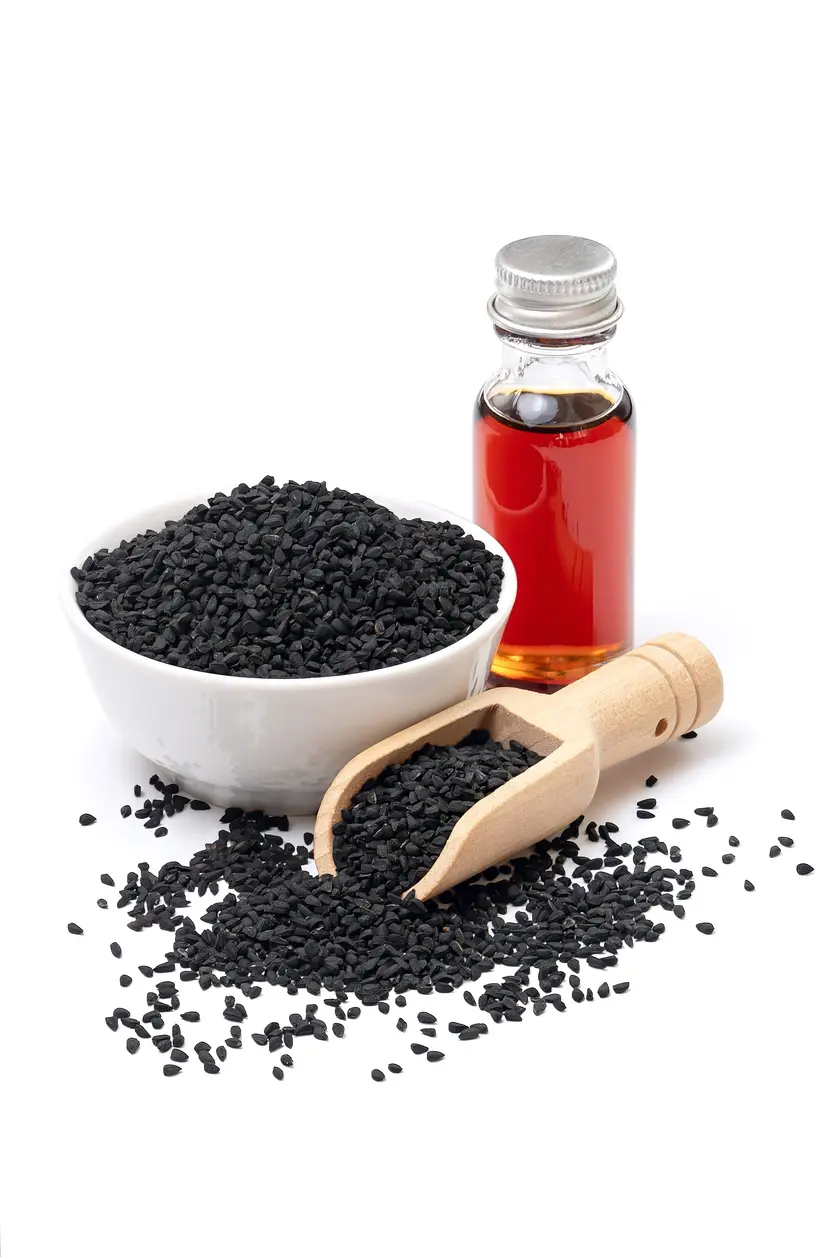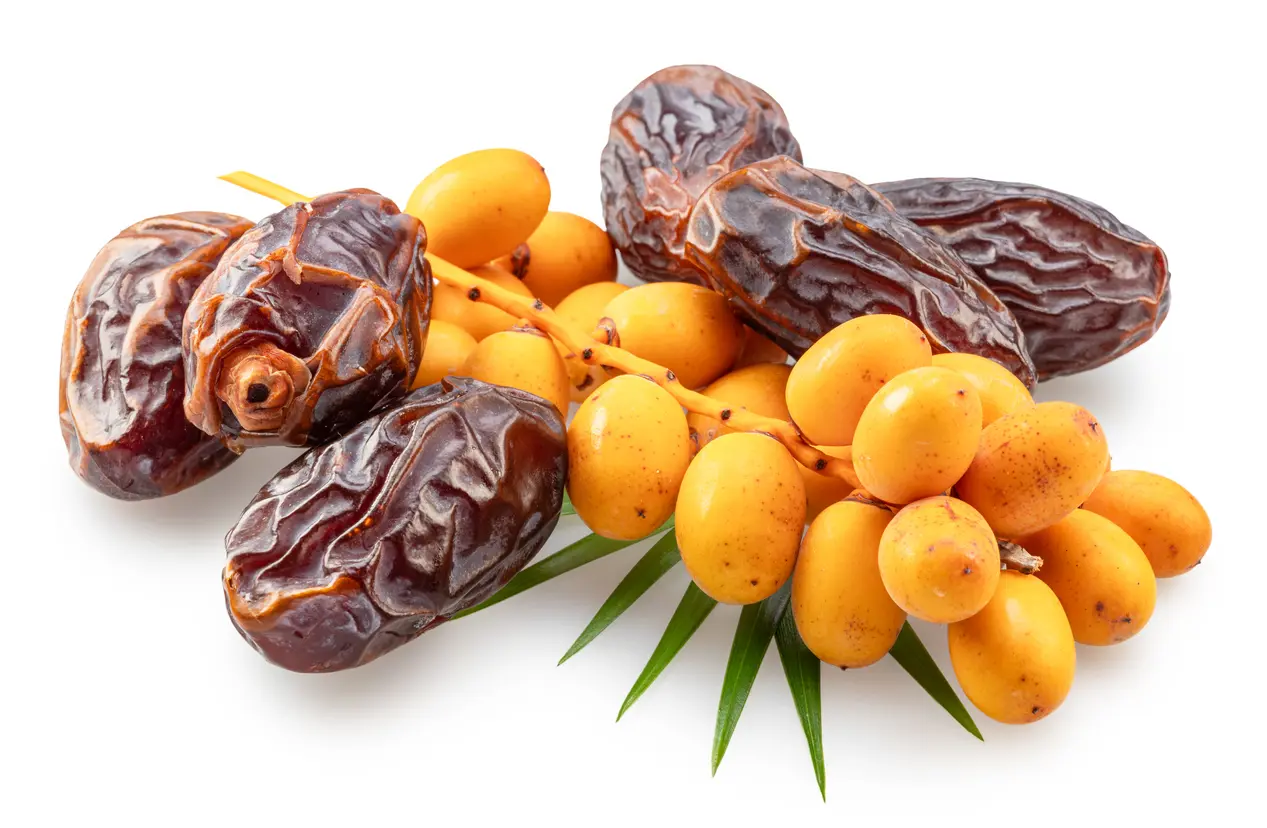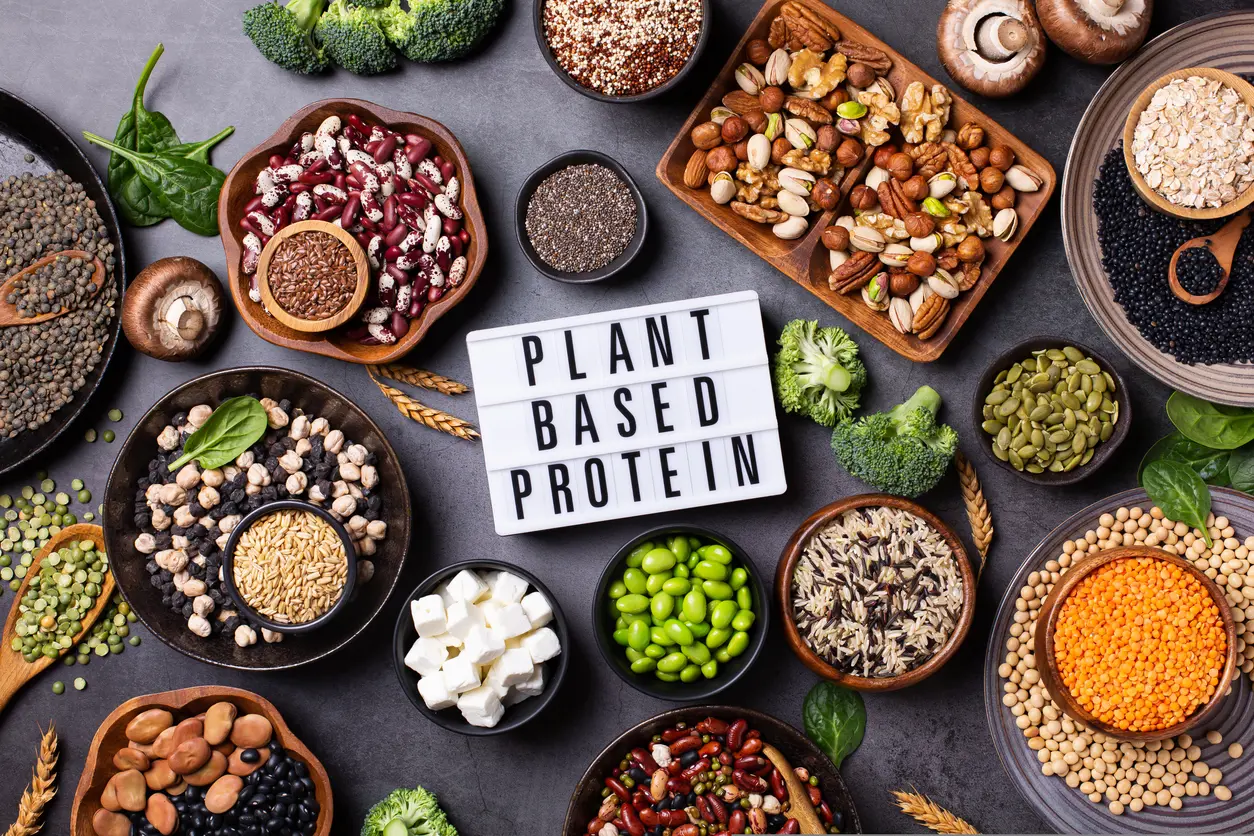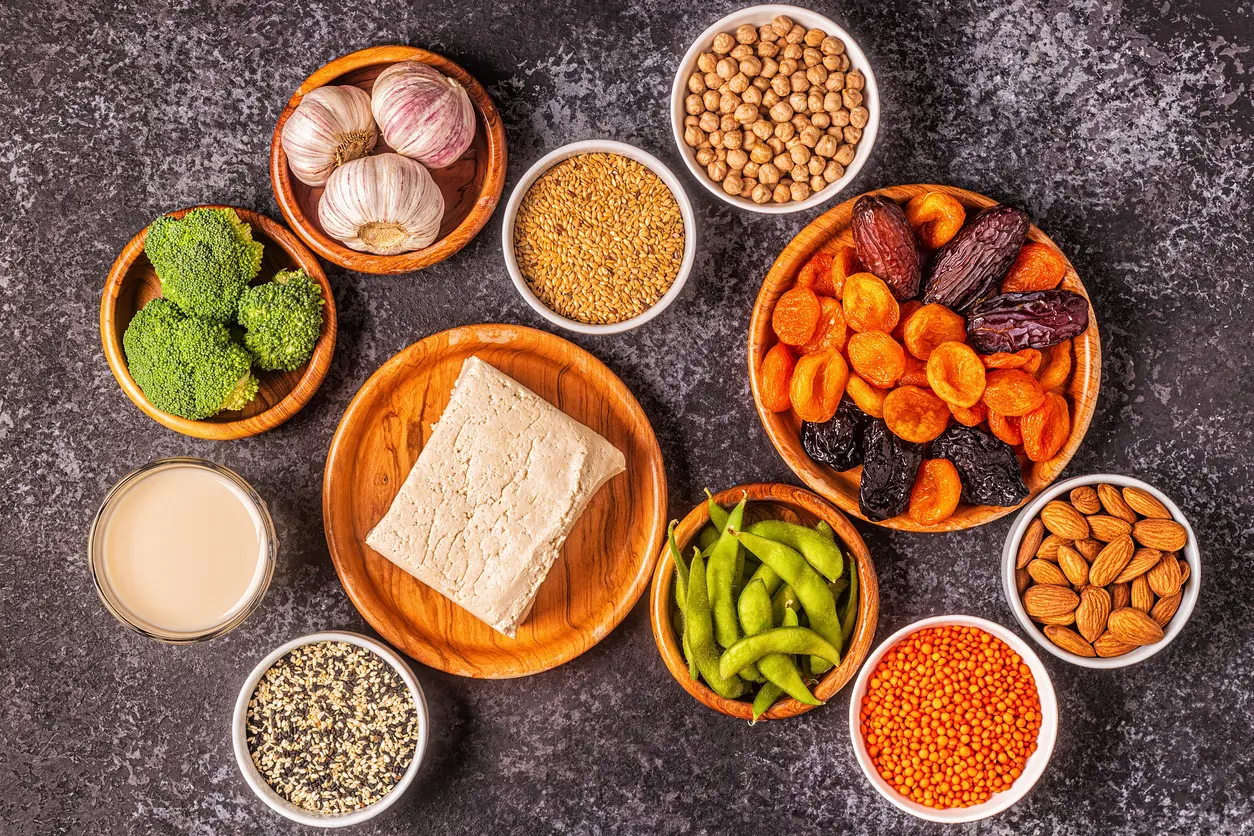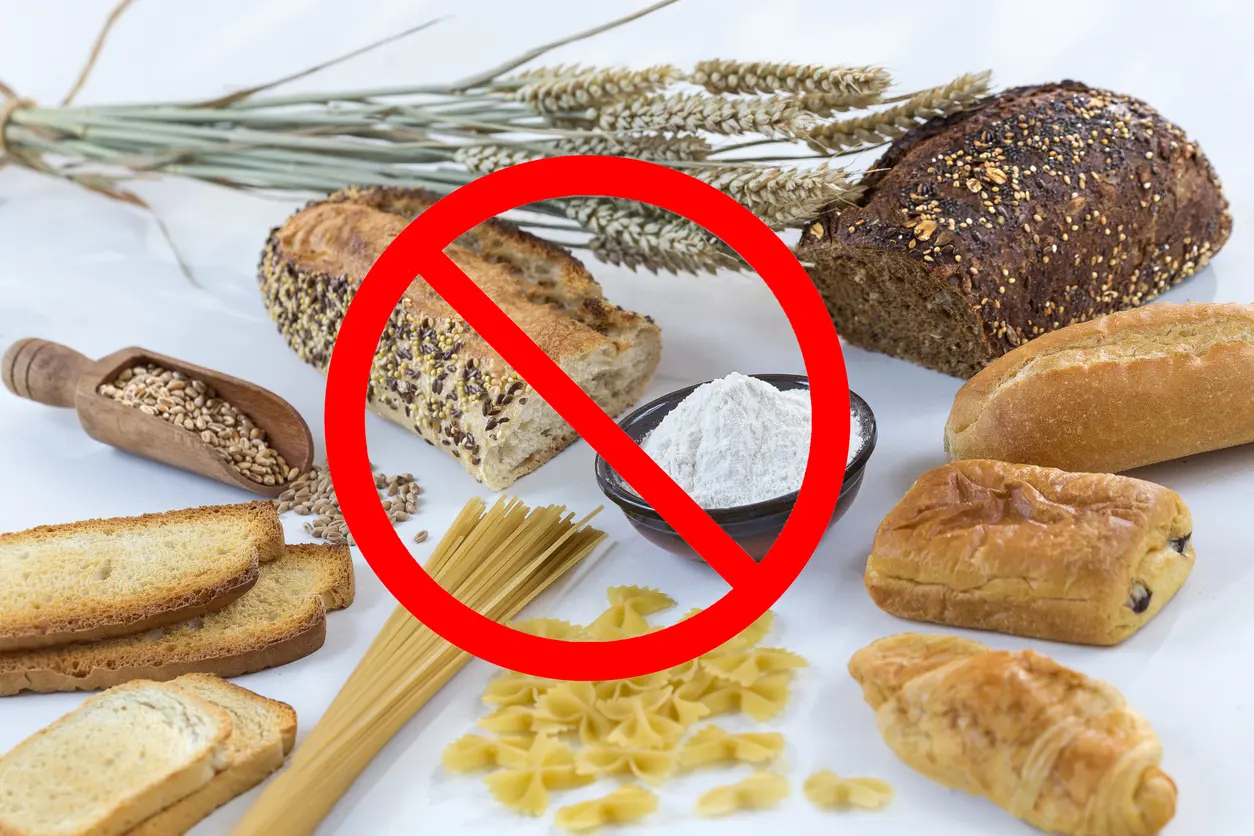Cloves Benefits, Side Effects, and Practical Uses
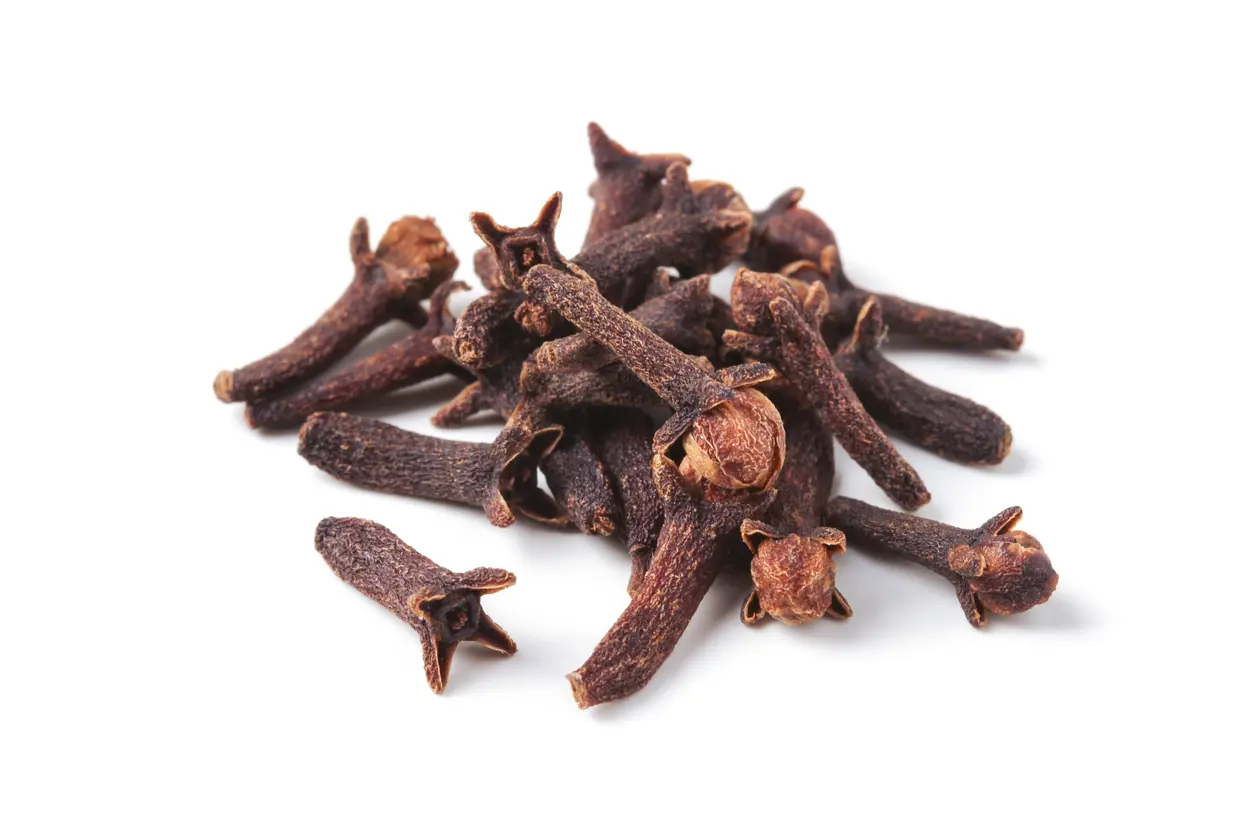
Cloves are renowned for their culinary value; they are a warm, aromatic spice often used in holiday baking and mulled wine. This spice is harvested from the dried flower buds of the Syzygium aromaticum tree and has been used for centuries in Ayurvedic and Chinese medicine. Cloves have been valued for their pain-relieving, anti-inflammatory, antimicrobial, and gastroprotective properties. [1] Chaieb K, Hajlaoui H, Zmantar T, et al. The chemical composition and biological activity of clove essential oil, Eugenia caryophyllata (Syzigium aromaticum L. Myrtaceae): a short review. Phytother Res. 2007;21(6):501-506. doi:10.1002/ptr.2124 Today, they are gaining popularity, and there are different formulations of cloves for digestion, oral pain relief, and blood sugar regulation. [3] Batiha GES, Alkazmi LM, Wasef LG, Beshbishy AM, Nadwa EH, Rashwan EK. Syzygium aromaticum L. (Myrtaceae): Traditional Uses, Bioactive Chemical Constituents, Pharmacological and Toxicological Activities. Biomolecules. 2020;10(2):202. doi:10.3390/biom10020202
Herbal medicine often draws interest as a source of new pharmaceutical targets, and research has begun to explore the science behind the benefits of cloves. The high concentration of eugenol, a plant compound with antioxidant, anti-inflammatory, and antimicrobial activity, is responsible for many of the beneficial effects of this plant. [2] Kamatou GP, Vermaak I, Viljoen AM. Eugenol--from the remote Maluku Islands to the international marketplace: a review of a remarkable and versatile molecule. Molecules. 2012;17(6):6953-6981. doi:10.3390/molecules17066953 The scientific research into the activity of eugenol helps to uncover the reasons why it has been used for centuries in several cultures.
This article will discuss the evidence-based benefits of cloves, potential adverse effects, and safe ways to use them. It will help you to make informed choices about incorporating cloves for health into your diet and wellness routine.
What Are Cloves?
Cloves are the dried flower buds of the evergreen tree Syzygium aromaticum, native to the Maluku Islands of Indonesia. As a spice, cloves for cooking are known for their pungent aroma and warm, slightly sweet flavor. Cloves have been used in several culinary traditions for centuries. They were one of the most valuable spices during the 14th century, and they were traded for large profits. In medieval Europe, they were used to season foods, preserve meats, and create medicinal concoctions. [2] Kamatou GP, Vermaak I, Viljoen AM. Eugenol--from the remote Maluku Islands to the international marketplace: a review of a remarkable and versatile molecule. Molecules. 2012;17(6):6953-6981. doi:10.3390/molecules17066953
Traditional Uses
Ayurvedic medicine has used cloves for digestion, relieving toothaches, and treating respiratory problems. They are also included in some preparations for neuroprotection and stress. [4] Norouzkhani N, Karimi AG, Badami N, et al. From kitchen to clinic: Pharmacotherapeutic potential of common spices in Indian cooking for age-related neurological disorders. Front Pharmacol. 2022;13:960037. doi:10.3389/fphar.2022.960037 Traditional Chinese medicine has used cloves for 2000 years as an antispasmodic, antibacterial, and antiparasitic medicine. In Western herbal traditions, cloves have been incorporated into herbal remedies for gastrointestinal problems and infections. [2] Kamatou GP, Vermaak I, Viljoen AM. Eugenol--from the remote Maluku Islands to the international marketplace: a review of a remarkable and versatile molecule. Molecules. 2012;17(6):6953-6981. doi:10.3390/molecules17066953
Active Compounds
The health properties of cloves are largely attributed to eugenol, a bioactive compound that has antioxidant, anti-inflammatory, and antimicrobial effects. Eugenol is responsible for clove oil's numbing action, making it helpful in alleviating tooth pain.
Related: Food to Eat and Avoid After Wisdom Teeth Removal
Cloves also contain flavonoids, tannins, and other polyphenols, which are beneficial compounds in plants that have several health benefits. [5] Liñán-Atero R, Aghababaei F, García SR, et al. Clove Essential Oil: Chemical Profile, Biological Activities, Encapsulation Strategies, and Food Applications. Antioxidants (Basel). 2024;13(4):488. doi:10.3390/antiox13040488
Nutritional Profile
According to the US Department of Agriculture, one teaspoon (about 2 grams) of cloves provides: [6] Spices, cloves, ground - Nutrients - SR Legacy | USDA FoodData Central. Accessed September 23, 2025.
- Calories: 5.75
- Carbohydrates: 1.38 g
- Fiber: 0.7 g
- Manganese: 55% of the Daily Value
- Vitamin K: 2% of the Daily Value
- Vitamin C: 1% of the Daily Value
Manganese helps support bone health and metabolism, and it has antioxidant properties. [7] Ainyanbhor IE, Edo GI, Akpoghelie PO, et al. A review on manganese and its effect on health and distribution in selected African countries. J Trace Elem Med Biol. 2025;91:127707. doi:10.1016/j.jtemb.2025.127707
Health Benefits of Cloves
Emerging research has uncovered several potential cloves benefits. Most are linked to the high content of eugenol and other antioxidant compounds. Here are some of the evidence-based benefits of cloves:
Powerful Antioxidant Properties
Cloves exhibit antioxidant effects due to their high content of phenolic compounds, including eugenol, gallic acid, and flavonoids. These compounds act as scavengers of free radicals, which are harmful substances that contribute to cellular inflammation and aging. The antioxidant properties of cloves surpass those of other spices and even some traditional antioxidants, such as vitamin C. [8] Abdelmuhsin AA, Sulieman AME, Salih ZA, et al. Clove (Syzygium aromaticum) Pods: Revealing Their Antioxidant Potential via GC-MS Analysis and Computational Insights. Pharmaceuticals (Basel). 2025;18(4):504. doi:10.3390/ph18040504 These antioxidant effects can support neurological and gastrointestinal health, as well as maintain healthy inflammation levels. [9] Sargsyan T, Simonyan HM, Stepanyan L, et al. Neuroprotective Properties of Clove (Syzygium aromaticum): State of the Art and Future Pharmaceutical Applications for Alzheimer's Disease. Biomolecules. 2025;15(3):452. doi:10.3390/biom15030452
Cloves for Digestion and Gut Health
Eugenol and β-caryophyllene are compounds in cloves that support gastrointestinal health by optimizing the gut microbiome and regulating inflammation. The antibacterial properties help to maximize the number of good bacteria and inhibit the growth of harmful bacteria in the gastrointestinal system. [10] Maggini V, Semenzato G, Gallo E, Nunziata A, Fani R, Firenzuoli F. Antimicrobial Activity of Syzygium aromaticum Essential Oil in Human Health Treatment. Molecules. 2024;29(5):999. doi:10.3390/molecules29050999 ,[11] Yeom JE, Kim SK, Park SY. Regulation of the Gut Microbiota and Inflammation by β-Caryophyllene Extracted from Cloves in a Dextran Sulfate Sodium-Induced Colitis Mouse Model. Molecules. 2022;27(22):7782. doi:10.3390/molecules27227782 The essential oil extract has also demonstrated activity against ulcers in animals by enhancing mucous production, protecting the stomach from damage due to acid. [12] Issac A, Gopakumar G, Kuttan R, Maliakel B, Krishnakumar IM. Safety and anti-ulcerogenic activity of a novel polyphenol-rich extract of clove buds (Syzygium aromaticum L). Food Funct. 2015;6(3):842-852. doi:10.1039/c4fo00711e
Anti-Inflammatory and Pain Relief
Cloves contain many compounds that have anti-inflammatory effects, primarily due to their antioxidant activity, as previously described. This plant stops the release of many inflammatory chemicals in the body. Cloves also inhibit the action of sodium channels in nerves. This prevents the nerve from sending the pain signal to the brain, allowing for pain relief when applied directly to the site of pain. [13] Pandey VK, Srivastava S, Ashish, et al. Bioactive properties of clove (Syzygium aromaticum) essential oil nanoemulsion: A comprehensive review. Heliyon. 2023;10(1):e22437. doi:10.1016/j.heliyon.2023.e22437
Cloves Benefits for Dental and Oral Health
Cloves can help alleviate pain, particularly dental pain and oral discomfort, through their numbing and anti-inflammatory properties. For example, eugenol produces a numbing effect when applied directly to the site of pain. Some studies have demonstrated that it is as effective as benzocaine gel. [14] Alqareer A, Alyahya A, Andersson L. The effect of clove and benzocaine versus placebo as topical anesthetics. J Dent. 2006;34(10):747-750. doi:10.1016/j.jdent.2006.01.009 Mouthwash containing cloves has helped reduce inflammation in those undergoing radiotherapy for cancer. [15] Kong M, Hwang DS, Yoon SW, Kim J. The effect of clove-based herbal mouthwash on radiation-induced oral mucositis in patients with head and neck cancer: a single-blind randomized preliminary study. Onco Targets Ther. 2016;9:4533-4538. doi:10.2147/OTT.S108769
Related: Cancer-Fighting Foods: A Natural Approach to Boosting Your Health
May Help Regulate Blood Sugar
Cloves may help regulate blood sugar levels by working almost like insulin, inhibiting specific genes associated with diabetes. In animal studies, extracts of cloves regulate blood sugar spikes, but it is not known if it has any effect in humans. [13] Pandey VK, Srivastava S, Ashish, et al. Bioactive properties of clove (Syzygium aromaticum) essential oil nanoemulsion: A comprehensive review. Heliyon. 2023;10(1):e22437. doi:10.1016/j.heliyon.2023.e22437
Antimicrobial and Antifungal Activity
Eugenol has activity against certain bacteria and fungi. For example, clove oil uses include an inhibitory effect on certain bacteria that can grow in food, such as Staphylococcus aureus and Escherichia coli. This antimicrobial activity is probably why cloves have been used for food preservation in the past. Furthermore, cloves have activity against the fungus that causes vaginal yeast infections and the bacteria that cause ulcers. [13] Pandey VK, Srivastava S, Ashish, et al. Bioactive properties of clove (Syzygium aromaticum) essential oil nanoemulsion: A comprehensive review. Heliyon. 2023;10(1):e22437. doi:10.1016/j.heliyon.2023.e22437
Cloves for Weight Loss and Weight Management
Eugenol may also be a powerful ingredient of cloves for weight loss. In some animal studies, eugenol has been shown to inhibit the accumulation of fat and subsequent weight gain in mice. It also prevented the development of changes in the microbiome that are associated with obesity. [16] Li M, Zhao Y, Wang Y, et al. Eugenol, A Major Component of Clove Oil, Attenuates Adiposity and Modulates Gut Microbiota in High-Fat Diet-Fed Mice. Mol Nutr Food Res. 2022;66(20):e2200387. doi:10.1002/mnfr.202200387
It is essential to note that most studies have been conducted in animals, making it challenging to determine if clove extracts would have the same effects in humans.
Cloves Side Effects, Dosage per Day, and Safety Precautions
While cloves are generally safe when used in culinary amounts, concentrated forms such as clove oil or supplements can pose risks if taken in excess. Understanding the safe cloves dosage per day, possible cloves side effects, and potential drug interactions is crucial before incorporating cloves into your wellness routine.
Safe Dosing
Here are tips to ensure you are using a safe dose of cloves:
- Culinary use: Adding a pinch of ground cloves to recipes, teas, or spice blends is considered safe for most healthy adults.
- Supplements or oils: These products provide higher concentrations of eugenol and should be used with caution. There is no universally established daily dose, but most herbal references recommend limiting clove oil intake to very small, diluted amounts under professional supervision. [3] Batiha GES, Alkazmi LM, Wasef LG, Beshbishy AM, Nadwa EH, Rashwan EK. Syzygium aromaticum L. (Myrtaceae): Traditional Uses, Bioactive Chemical Constituents, Pharmacological and Toxicological Activities. Biomolecules. 2020;10(2):202. doi:10.3390/biom10020202 According to the World Health Organization, the acceptable daily amount of clove is 2.5 milligrams per kilogram of body weight (about 170 mg for a 150-pound person). [3] Batiha GES, Alkazmi LM, Wasef LG, Beshbishy AM, Nadwa EH, Rashwan EK. Syzygium aromaticum L. (Myrtaceae): Traditional Uses, Bioactive Chemical Constituents, Pharmacological and Toxicological Activities. Biomolecules. 2020;10(2):202. doi:10.3390/biom10020202
- Clove tea: Drinking one cup made with 1–2 whole cloves or a small pinch of ground cloves is typically safe.
Risks of Overuse
There are some risks of overuse of cloves: [3] Batiha GES, Alkazmi LM, Wasef LG, Beshbishy AM, Nadwa EH, Rashwan EK. Syzygium aromaticum L. (Myrtaceae): Traditional Uses, Bioactive Chemical Constituents, Pharmacological and Toxicological Activities. Biomolecules. 2020;10(2):202. doi:10.3390/biom10020202
- Liver toxicity: High amounts of eugenol may damage the liver, especially when consumed in concentrated oil form.
- Allergic reactions: Some individuals may experience skin rashes, mouth irritation, or respiratory symptoms after exposure to cloves.
- Gastrointestinal upset: Overuse can cause nausea, vomiting, or diarrhea.
- Bleeding and Seizures: Rarely, extremely high doses of cloves have been associated with serious adverse effects.
Medication Interactions
Cloves may interact with certain medications, including:
- Blood thinners (e.g., warfarin, aspirin): Eugenol has mild blood-thinning effects, which may increase the risk of bleeding.
- Diabetes medications: Some studies suggest cloves may lower blood sugar; combining with glucose-lowering drugs could cause hypoglycemia.
Who Should Avoid Cloves
Certain groups should limit or avoid clove supplements and oils unless advised by a healthcare professional:
- Children: Clove oil can be toxic if swallowed.
- Pregnant or breastfeeding women: Safety data are limited; culinary amounts are considered safe, but concentrated forms should be avoided.
- People with chronic illnesses: Those with liver disease, bleeding disorders, a history of seizures, or uncontrolled diabetes should exercise caution.
Practical Ways to Use Cloves
You can use cloves in cooking, teas, and diluted oils. Adding them to your diet and wellness routine can provide potential health benefits and an interesting flavor.
1. Cloves in Cooking and Baking
Here’s how to use cloves in your cooking:
- Savory dishes: Whole cloves can be added to curries, rice, stews, or broths for flavor.
- Baking: Ground cloves are often used with cinnamon and nutmeg in cookies, cakes, and pies.
- Beverages: Cloves are an essential ingredient in chai tea, mulled wine, and cider.
Remember to use cloves sparingly in cooking, as their flavor can be quite potent. [17] Institute MS. Cloves. McCormick Science Institute. Accessed September 23, 2025.
2. Clove Tea Benefits and Simple Recipe
Clove tea benefits include improved digestion, and their taste adds an interesting twist.
Tea recipe: [18] How to Make Clove Tea at Home for Beginners. Seven Teas. Accessed September 23, 2025.
- Boil 1 cup of water.
- Add 2–3 whole cloves (or ¼ teaspoon ground cloves).
- Steep for 5–10 minutes and strain.
- Add honey or cinnamon for taste.
It may be helpful to drink clove tea after meals for its gastroprotective effects. [19] Health Benefits of Cloves. WebMD. Accessed September 23, 2025.
3. Chewing Cloves
Chewing a clove releases eugenol, and its mild numbing effects can help alleviate dental pain. However, it may irritate gums or cause a burning sensation, so start with a small amount.
4. Clove Oil Uses for Health and Aromatherapy
Clove oil has several uses: [20] Clove Oil for Toothache: Does It Work? Healthline. February 23, 2017. Accessed September 23, 2025. ,[21] Vora LK, Gholap AD, Hatvate NT, et al. Essential oils for clinical aromatherapy: A comprehensive review. J Ethnopharmacol. 2024;330:118180. doi:10.1016/j.jep.2024.118180 ,[22] Liñán-Atero R, Aghababaei F, García SR, et al. Clove Essential Oil: Chemical Profile, Biological Activities, Encapsulation Strategies, and Food Applications. Antioxidants (Basel). 2024;13(4):488. doi:10.3390/antiox13040488
- Dental care: Clove oil can be combined with a carrier oil, such as coconut or almond oil, and applied to the affected area using a cotton swab.
- Aromatherapy: Adding a few drops to a diffuser can create a comforting scent in the home. It is used in aromatherapy to reduce airborne illnesses and improve mood.
- Topical use: When diluted, clove oil may provide a warming effect for sore muscles. Undiluted clove oil should never be applied directly to the skin, as it can cause irritation.
5. Traditional Home Remedies
Cloves have been incorporated into home remedies for cough, colds, and indigestion. For example, cloves steeped in honey and ginger are a traditional soothing drink in many cultures. These uses are based on historical practices rather than clinical trials, and should therefore be viewed as complementary.
Expert Tips for Safe Use
Cloves can be safe when used in moderation. Because of their concentrated bioactive compounds, a few tips can help maximize benefits while minimizing risks.
Frequency and Portion
Always consider the frequency and portion: [22] Liñán-Atero R, Aghababaei F, García SR, et al. Clove Essential Oil: Chemical Profile, Biological Activities, Encapsulation Strategies, and Food Applications. Antioxidants (Basel). 2024;13(4):488. doi:10.3390/antiox13040488
- Culinary use: Adding 1–2 cloves to a recipe or ¼ teaspoon of ground cloves to baking or tea is generally safe for most adults.
- Avoid overuse: Use highly concentrated oils or supplements only under medical supervision. Safety data on long-term supplementation remain limited, and it is safer to obtain benefits from food.
Pairings With Other Spices
Cloves combine well with other spices such as ginger, cinnamon, and turmeric. These pairings not only enhance flavor but may also provide complementary antioxidant and digestive benefits. [23] Do Cloves Have Health Benefits? Cleveland Clinic. Accessed September 23, 2025.
Storage Tips
Whole cloves retain their flavor longer than ground cloves. Store them in a cool, dark place in an airtight container, where they can last for up to one year. Ground cloves should be used within 6 months for best potency.
When to Seek Medical Advice
You should always consult a healthcare professional before starting any new supplement. Your healthcare professional can help you ensure safety, efficacy, and avoid any potential drug interactions.
FAQs About Cloves
How many cloves can I eat daily?
- For most healthy adults, using 1–2 whole cloves or up to ¼ teaspoon of ground cloves per day in cooking or tea is considered safe. Larger amounts may cause stomach upset or interact with medications. Concentrated clove oil should not be ingested unless under medical supervision.
Are cloves safe during pregnancy?
- Culinary amounts of cloves are generally regarded as safe in pregnancy. However, concentrated clove oil, teas made in large quantities, or supplements are not recommended because safety data are limited. Always consult your obstetrician before using any supplements.
Do cloves help with weight loss?
Some studies suggest that cloves may support digestion and metabolism, which could indirectly aid in weight management. [24] Tu Z, Moss-Pierce T, Ford P, Jiang TA. Syzygium aromaticum L. (Clove) extract regulates energy metabolism in myocytes. J Med Food. 2014;17(9):1003-1010. doi:10.1089/jmf.2013.0175 However, there is no substantial clinical evidence that using cloves for weight loss in humans would work, but they may be supportive.
What is clove water, and how is it made?
Clove water is an infusion of cloves in warm water. To make it, you steep freshly ground or whole dried clove buds in hot water for 10 to 20 minutes. This maximizes the extraction of polyphenols and other antioxidants. [25] Suantawee T, Wesarachanon K, Anantsuphasak K, et al. Protein glycation inhibitory activity and antioxidant capacity of clove extract. J Food Sci Technol. 2015;52(6):3843-3850. doi:10.1007/s13197-014-1452-1
Can cloves replace medication?
- No. Cloves should be considered a complementary spice for flavor and potential health benefits. They are not a substitute for prescribed medications.
Cloves have a rich history as both a culinary spice and a traditional remedy in various systems of medicine. Some research suggests potential clove benefits for antioxidant support, digestion, oral health, and blood sugar regulation. However, certain concentrated supplements may cause cloves side effects in individuals with chronic health conditions, during pregnancy, or when combined with other medications. Using cloves in cooking, beverages, and teas is generally safe. For those considering higher doses, cloves dosage per day should always be guided by a healthcare professional. Cloves can spice up your wellness routine when used appropriately.
This article is for informational purposes only and is not a substitute for professional medical advice, diagnosis, or treatment. Always consult a qualified healthcare professional before making changes to your diet, supplements, or wellness plan.
Was this article helpful?
-
The chemical composition and biological activity of clove essential oil, Eugenia caryophyllata (Syzigium aromaticum L. Myrtaceae): a short review. Phytother Res. 2007;21(6):501-506. doi:10.1002/ptr.2124; Chaieb K, Hajlaoui H, Zmantar T, et al. ;
https://pubmed.ncbi.nlm.nih.gov/17380552/ -
Eugenol--from the remote Maluku Islands to the international marketplace: a review of a remarkable and versatile molecule. Molecules. 2012;17(6):6953-6981. doi:10.3390/molecules17066953; Kamatou GP, Vermaak I, Viljoen AM.;
https://pubmed.ncbi.nlm.nih.gov/22728369/ -
Syzygium aromaticum L. (Myrtaceae): Traditional Uses, Bioactive Chemical Constituents, Pharmacological and Toxicological Activities. Biomolecules. 2020;10(2):202. doi:10.3390/biom10020202; Batiha GES, Alkazmi LM, Wasef LG, Beshbishy AM, Nadwa EH, Rashwan EK. ;
https://pubmed.ncbi.nlm.nih.gov/32019140/ -
From kitchen to clinic: Pharmacotherapeutic potential of common spices in Indian cooking for age-related neurological disorders. Front Pharmacol. 2022;13:960037. doi:10.3389/fphar.2022.960037; Norouzkhani N, Karimi AG, Badami N, et al. ;
https://pubmed.ncbi.nlm.nih.gov/36438833/ -
Clove Essential Oil: Chemical Profile, Biological Activities, Encapsulation Strategies, and Food Applications. Antioxidants (Basel). 2024;13(4):488. doi:10.3390/antiox13040488; Liñán-Atero R, Aghababaei F, García SR, et al. ;
https://pubmed.ncbi.nlm.nih.gov/38671935/ -
Spices, cloves, ground - Nutrients - SR Legacy | USDA FoodData Central. Accessed September 23, 2025.;
https://fdc.nal.usda.gov/food-details/171321/nutrients -
A review on manganese and its effect on health and distribution in selected African countries. J Trace Elem Med Biol. 2025;91:127707. doi:10.1016/j.jtemb.2025.127707; Ainyanbhor IE, Edo GI, Akpoghelie PO, et al. ;
https://pubmed.ncbi.nlm.nih.gov/40743625/ -
Clove (Syzygium aromaticum) Pods: Revealing Their Antioxidant Potential via GC-MS Analysis and Computational Insights. Pharmaceuticals (Basel). 2025;18(4):504. doi:10.3390/ph18040504; Abdelmuhsin AA, Sulieman AME, Salih ZA, et al. ;
https://www.mdpi.com/1424-8247/18/4/504 -
Neuroprotective Properties of Clove (Syzygium aromaticum): State of the Art and Future Pharmaceutical Applications for Alzheimer's Disease. Biomolecules. 2025;15(3):452. doi:10.3390/biom15030452; Sargsyan T, Simonyan HM, Stepanyan L, et al. ;
https://pubmed.ncbi.nlm.nih.gov/40149988/ -
Antimicrobial Activity of Syzygium aromaticum Essential Oil in Human Health Treatment. Molecules. 2024;29(5):999. doi:10.3390/molecules29050999; Maggini V, Semenzato G, Gallo E, Nunziata A, Fani R, Firenzuoli F. ;
https://pubmed.ncbi.nlm.nih.gov/38474510/ -
Regulation of the Gut Microbiota and Inflammation by β-Caryophyllene Extracted from Cloves in a Dextran Sulfate Sodium-Induced Colitis Mouse Model. Molecules. 2022;27(22):7782. doi:10.3390/molecules27227782; Yeom JE, Kim SK, Park SY. ;
https://pubmed.ncbi.nlm.nih.gov/36431883/ -
Safety and anti-ulcerogenic activity of a novel polyphenol-rich extract of clove buds (Syzygium aromaticum L). Food Funct. 2015;6(3):842-852. doi:10.1039/c4fo00711e; Issac A, Gopakumar G, Kuttan R, Maliakel B, Krishnakumar IM. ;
https://pubmed.ncbi.nlm.nih.gov/25605463/ -
Bioactive properties of clove (Syzygium aromaticum) essential oil nanoemulsion: A comprehensive review. Heliyon. 2023;10(1):e22437. doi:10.1016/j.heliyon.2023.e22437; Pandey VK, Srivastava S, Ashish, et al. ;
https://www.sciencedirect.com/science/article/pii/S2405844023096457 -
The effect of clove and benzocaine versus placebo as topical anesthetics. J Dent. 2006;34(10):747-750. doi:10.1016/j.jdent.2006.01.009; Alqareer A, Alyahya A, Andersson L. ;
https://pubmed.ncbi.nlm.nih.gov/16530911/ -
The effect of clove-based herbal mouthwash on radiation-induced oral mucositis in patients with head and neck cancer: a single-blind randomized preliminary study. Onco Targets Ther. 2016;9:4533-4538. doi:10.2147/OTT.S108769; Kong M, Hwang DS, Yoon SW, Kim J. ;
https://pubmed.ncbi.nlm.nih.gov/27524909/ -
Eugenol, A Major Component of Clove Oil, Attenuates Adiposity and Modulates Gut Microbiota in High-Fat Diet-Fed Mice. Mol Nutr Food Res. 2022;66(20):e2200387. doi:10.1002/mnfr.202200387; Li M, Zhao Y, Wang Y, et al. ;
https://pubmed.ncbi.nlm.nih.gov/36029106/ -
Cloves. McCormick Science Institute. Accessed September 23, 2025. ; Institute MS. ;
https://www.mccormickscienceinstitute.com/resources/culinary-spices/herbs-spices/cloves -
How to Make Clove Tea at Home for Beginners. Seven Teas. Accessed September 23, 2025. ;
https://seventeas.com/blogs/news/how-to-make-clove-tea-at-home-for-beginners -
Health Benefits of Cloves. WebMD. Accessed September 23, 2025. ;
https://www.webmd.com/diet/health-benefits-cloves -
Clove Oil for Toothache: Does It Work? Healthline. February 23, 2017. Accessed September 23, 2025.;
https://www.healthline.com/health/clove-oil-toothache -
Essential oils for clinical aromatherapy: A comprehensive review. J Ethnopharmacol. 2024;330:118180. doi:10.1016/j.jep.2024.118180; Vora LK, Gholap AD, Hatvate NT, et al. ;
https://pubmed.ncbi.nlm.nih.gov/38614262/ -
Clove Essential Oil: Chemical Profile, Biological Activities, Encapsulation Strategies, and Food Applications. Antioxidants (Basel). 2024;13(4):488. doi:10.3390/antiox13040488; Liñán-Atero R, Aghababaei F, García SR, et al. ;
https://pubmed.ncbi.nlm.nih.gov/38671935/ -
Do Cloves Have Health Benefits? Cleveland Clinic. Accessed September 23, 2025.;
https://health.clevelandclinic.org/benefits-of-cloves -
Syzygium aromaticum L. (Clove) extract regulates energy metabolism in myocytes. J Med Food. 2014;17(9):1003-1010. doi:10.1089/jmf.2013.0175; Tu Z, Moss-Pierce T, Ford P, Jiang TA. ;
https://pubmed.ncbi.nlm.nih.gov/24999964/ -
Protein glycation inhibitory activity and antioxidant capacity of clove extract. J Food Sci Technol. 2015;52(6):3843-3850. doi:10.1007/s13197-014-1452-1; Suantawee T, Wesarachanon K, Anantsuphasak K, et al. ;
https://pmc.ncbi.nlm.nih.gov/articles/PMC4444878/

